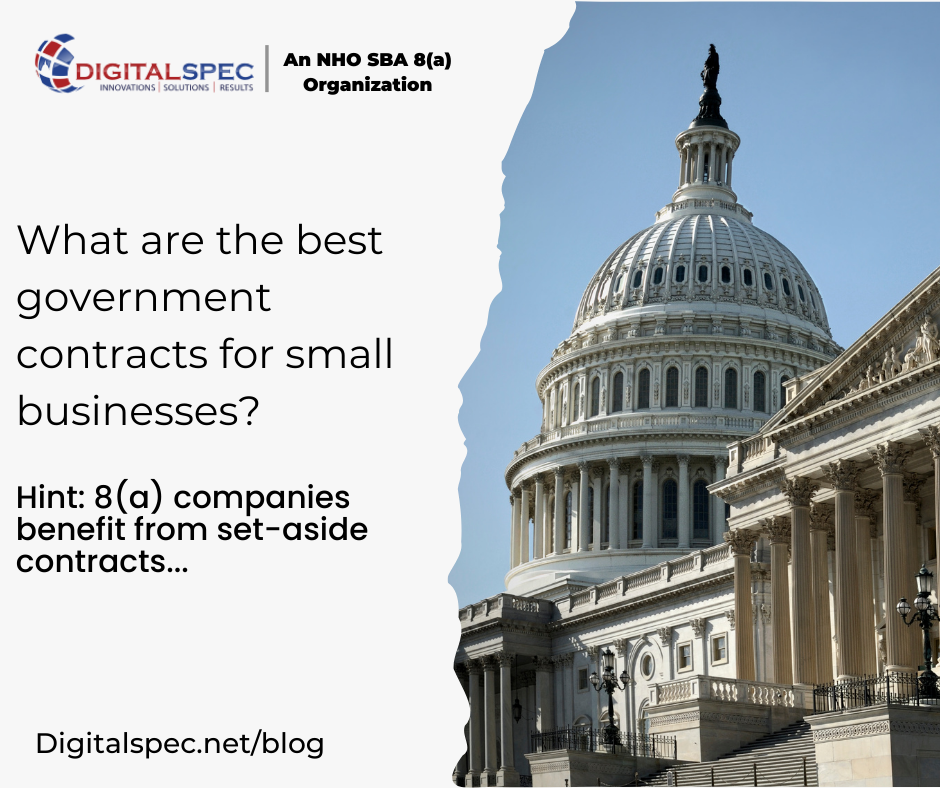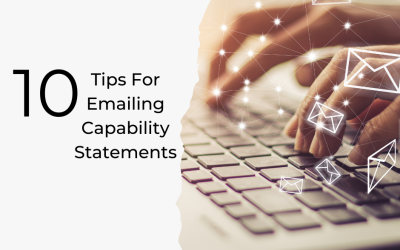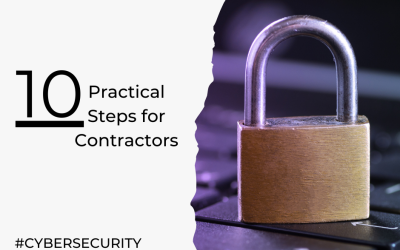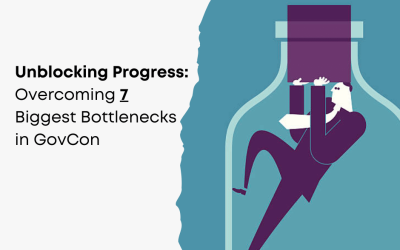The federal government is the world’s largest buyer of products and services, sourcing almost everything they need from big or small businesses. In fact, President Biden just announced $6 trillion in spending for 2022 – an increase over last year’s budget which was itself atypically high- ($5 trillion), which in turn stimulated the American economy through competitive contracts that were made available to qualified vendors.
But the looming question remains: With the many different contracts out there, which are the what are the best government contracts for small businesses or SMEs (small and medium-sized enterprises)?
Who qualifies as a Small Business Contractor?
US government contracting can be a great opportunity for small businesses to get their foot in the door and grow their operations. But who exactly qualifies as a small business contractor? The Small Business Administration’s (SBA) size standards determine which businesses are considered small and thus eligible for small business contracting opportunities. These standards vary by industry, but generally, a business is considered small if it has fewer than 500 employees. However, some industries have higher thresholds, such as 1,500 employees for manufacturing businesses. In addition, certain businesses may qualify as “economically disadvantaged” if they are owned and operated by individuals who have been historically underrepresented in the US economy, such as women or minorities. If you’re not sure whether your business qualifies as a small business contractor, the SBA’s size standards tool can help you find out. With this information in hand, you can be sure to take advantage of all the contracting opportunities that are available to you.
The best government contracts for small businesses
When it comes to government contracting, there are a few different types of contracts that are typically used for small businesses. These include sole source contracts, set-asides, and competitive 8(a) contracts. And each of these comes with different requirements, certifications, and prerequisites. Here is a brief to help you get started:
Sole Source Contracts: A sole source contract is when the government decides that only one company can provide the goods or services that they need. This type of contract is usually reserved for when there is an emergency situation or when the product or service is only available from one company, such as Boeing and it’s aircraft contracts with the DoD (Department of Defense).
In order for a sole source set-aside contract to be awarded, the contracting officer must justify the decision in writing. The justification must include a detailed description of the goods or services to be procured and an explanation of why competition is not feasible. Sole source set-aside contracts can be a valuable tool for procuring needed goods and services, but they should only be used when competition is truly not possible.
Competitive Set-Asides: Competitive set-aside contracts are a type of government contract that is typically awarded to a small business. In order to be eligible for this type of contract, a small business must first compete against other businesses for the right to be awarded the contract. This process ensures that only the most qualified businesses are awarded the contract. Competitive set-aside contracts can be very lucrative for small businesses, as they often involve large sums of money. However, these contracts can also be very risky, as there is always the possibility that a small business will not be able to complete the project on time or within budget. As a result, it is important for small businesses to carefully consider whether or not they are ready to take on the risk of a competitive set-aside contract before applying for one.
Competitive 8(a) Contracts: Competitive 8(a) contracts are another type of contract that is specifically set aside for small businesses. To be eligible for this type of contract, your business must be certified as a small disadvantaged business by the Small Business Administration (SBA). These contracts are typically awarded through a competitive bidding process.
By awarding these contracts, the SBA provides opportunities for 8(a) firms to build their capacity and capability so they can eventually compete for non-set-aside contracts. In addition, the SBA provides financial and technical assistance to help 8(a) firms successfully perform on their government contracts. As a result, the 8(a) Business Development program is an important resource for small businesses that want to compete in the federal marketplace.
Conclusion
It’s important to note that these contracts come in various forms, such as fixed-price contracts, cost-reimbursement contracts, incentive contracts, indefinite-delivery contracts, and Time-and-Materials, Labor-Hour, & Letter Contracts. Each type of contract has its own eligibility requirements, certifications (such as ISO), past performance requirements, and application processes, so if you’re thinking about doing business with the government, it’s important to familiarize yourself with the different types of contracts so that you can choose the one that’s best for your business.
Once you have figured out which kinds of contracts you want to win, the next step will be to find them. We wrote an entire article on this too! Learn about the 5 best contracting websites to discover open government contracts here. And if you have any questions, reach out to us at DIGITALSPEC and we will be happy to guide you.
DIGITALSPEC is an IT and business consulting government contractor with 15+ years of experience with top agencies, numerous certifications, and 80+ employees. Feel free to learn about our story by visiting our website or reaching out at sales@digitalspec.net.



